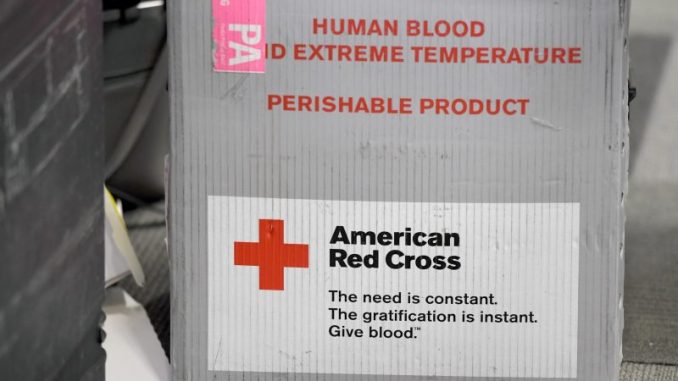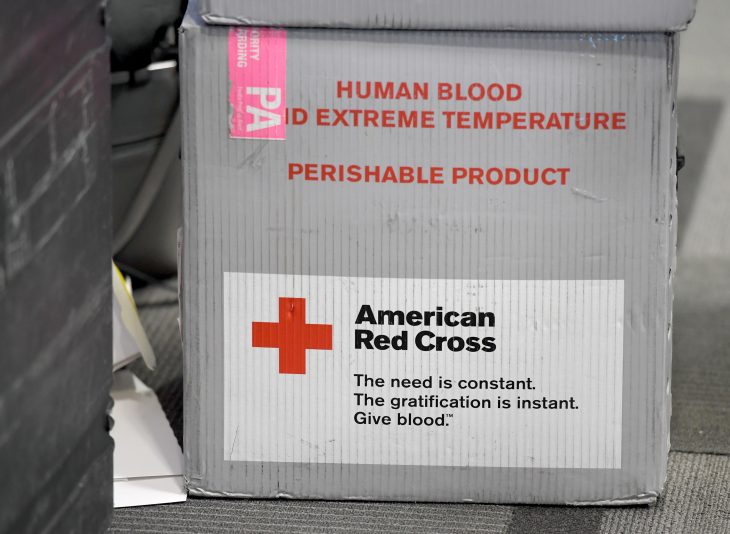

OAN’s Elizabeth Volberding
1:20 PM – Monday, January 8, 2024
The American Red Cross announced that it is enduring an emergency blood shortage, as a result it has called on citizens to donate.
Advertisement
On Monday, the Red Cross declared in a release that it is facing an emergency blood shortage as it is currently encountering the lowest amount of people giving blood over the last 20 years.
According to the nonprofit organization based in Washington, D.C., which gathers and distributes roughly 40% of all blood donations made in the United States, the blood shortage is so serious that it is unable to provide an adequate amount of blood to certain hospitals that need it for their patients.
The emergency shortage could result in some patients receiving less blood than they require or hospitals may find it difficult to find compatible donors for patients with rarer blood types.
The release also stated that hospitals are currently needing blood products, including whole blood, red blood cells, plasma and platelets, quicker than donations are being received.
“One of the most distressing situations for a doctor is to have a hospital full of patients and an empty refrigerator without any blood products,” said Dr. Pampee Young, chief medical officer of the Red Cross. “A person needs lifesaving blood every two seconds in our country — and its availability can be the difference between life and death, however, blood is only available thanks to the generosity of those who roll up a sleeve to donate.”
As a result, the Red Cross has been forced to restrict distributions of some of the most transfused blood types to hospitals.
According to Dr. Eric Gehrie, medical director of the American Red Cross, hospitals without a fully stocked blood bank may postpone procedures, delay transfusions for patients in need, and make it more difficult for patients with rare blood types to find compatible donors.
“There is more need for blood at hospitals than we are able to provide at current donation levels and this is an issue that is really … a long-term problem,” Gehrie told the press.
Gehrie additionally mentioned that since the COVID-19 pandemic started in January 2020, there has been a significant reduction in blood donors, dropping by 300,000.
“To put the numbers in perspective, we need an additional 8,000 donations every week in January in order to meet current hospital needs,” he said.
Gehrie announced that there are several possible factors as to why there is a significant fall in blood donation over the past few years. He said that one of these factors may include the pandemic, which resulted in many people staying at home, making it difficult to host blood drives.
“In the past, the American Red Cross worked with a lot of businesses and schools who would host blood drives on site and where it was possible for a lot of people to donate blood,” Gehrie stated. “As the way that we learn and work has changed, it’s been harder and harder to attract as many donors to an employer or school-related blood drive.”
He added that some donors are sometimes rejected for factors including iron levels, hemoglobin levels or travel restrictions. Those donors may not understand that they may have the opportunity to donate at a future time.
Only 3% of age-eligible individuals, or about 6.8 million Americans, donate blood each year, according to the Red Cross.
Stay informed! Receive breaking news blasts directly to your inbox for free. Subscribe here. https://www.oann.com/alerts

